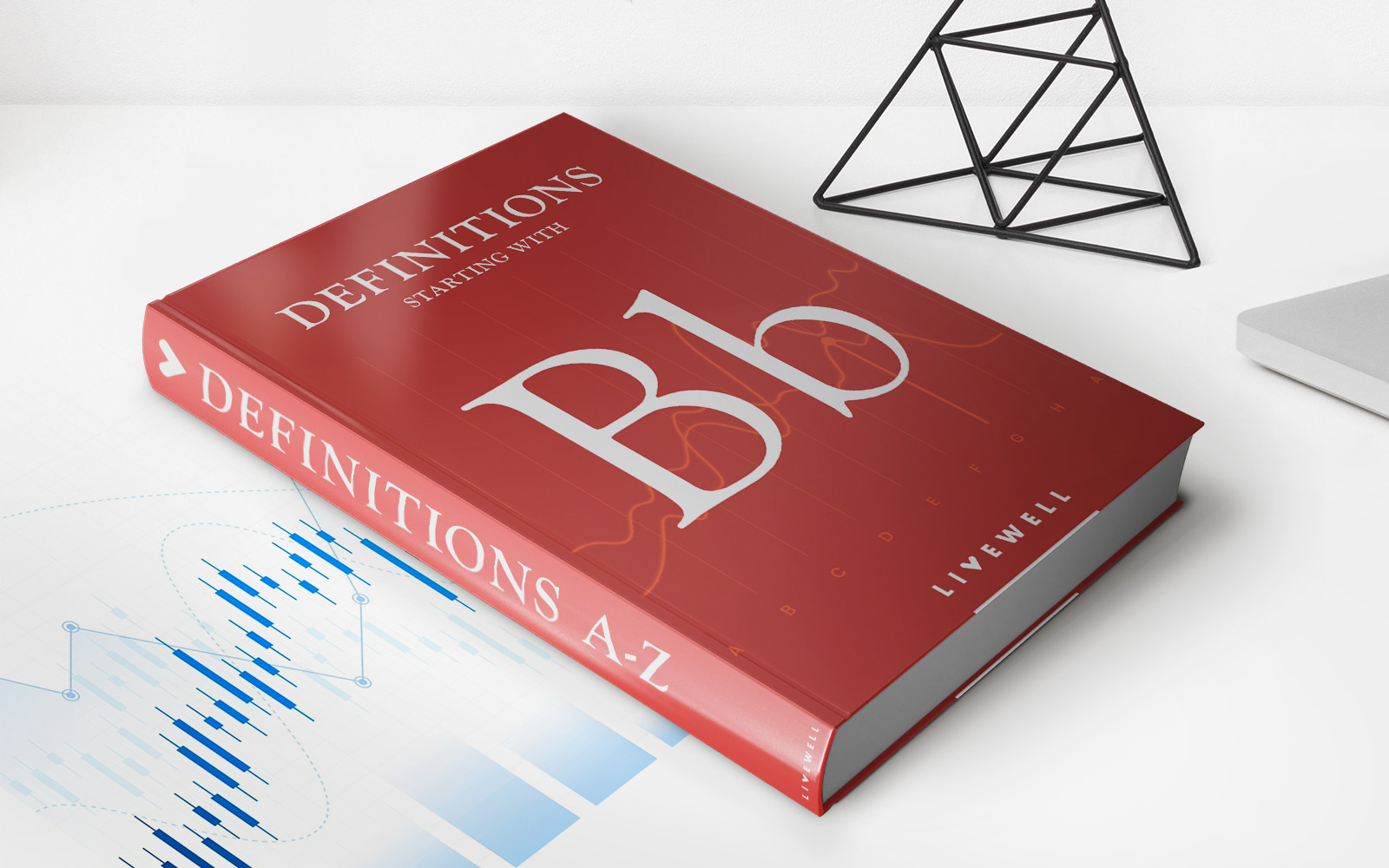

Finance
What Are The 3 Business Credit Bureaus
Modified: February 21, 2024
Learn about the three major business credit bureaus in the finance industry. Understand their role in assessing creditworthiness and managing financial risk.
(Many of the links in this article redirect to a specific reviewed product. Your purchase of these products through affiliate links helps to generate commission for LiveWell, at no extra cost. Learn more)
Table of Contents
- Introduction
- What is a Business Credit Bureau?
- Role of Business Credit Bureaus
- How Business Credit Bureaus Gather and Evaluate Information
- Comparison of the Three Major Business Credit Bureaus
- Experian Commercial
- Dun & Bradstreet
- Equifax Business
- Factors That Affect Business Credit Scores
- Importance of Monitoring and Maintaining Business Credit
- Conclusion
Introduction
When it comes to running a successful business, managing your finances and credit is crucial. Just as individuals have personal credit scores that impact their ability to secure loans or obtain favorable terms, businesses also have credit scores that directly influence their financial standing. To determine these scores, businesses rely on credit bureaus, just like individuals do.
However, business credit bureaus operate differently from consumer credit bureaus. They specialize in collecting and analyzing financial information specifically related to businesses. This information helps lenders, suppliers, and other business partners evaluate the creditworthiness and financial health of a company before making decisions to extend credit, establish trade relationships, or enter into contracts.
In the United States, there are three main business credit bureaus that play a significant role in assessing and reporting business credit: Experian Commercial, Dun & Bradstreet, and Equifax Business. Each of these credit bureaus has its own unique methodology for gathering and evaluating business credit information.
In this article, we will explore the crucial role of business credit bureaus in evaluating creditworthiness, managing financial risks, and making informed business decisions. We will delve into the processes they employ for collecting and assessing business credit data, as well as the key factors that impact a business’s credit score. Additionally, we will highlight the key features and differences of the three major business credit bureaus, Experian Commercial, Dun & Bradstreet, and Equifax Business. By understanding the importance of business credit and the role of credit bureaus, you will be better equipped to navigate the world of business finance and make informed decisions for your company.
What is a Business Credit Bureau?
A business credit bureau is an agency that specializes in collecting, analyzing, and reporting financial data related to businesses. These bureaus serve as centralized repositories of information about the creditworthiness and financial health of companies. They gather data from various sources, including financial institutions, trade creditors, public records, and other businesses.
The primary role of a business credit bureau is to assess the creditworthiness of businesses and provide this information to lenders, suppliers, and other interested parties. Similar to individual credit scores, businesses are assigned credit scores that reflect their ability to repay debts and manage financial obligations. These scores are used by lenders to evaluate the risk associated with extending credit to a particular business, while suppliers use them to assess the likelihood of timely payments and trade credit.
Business credit bureaus also compile comprehensive credit reports for businesses. These reports contain detailed information about a company’s credit history, including past payment history, outstanding debts, public records, and more. They provide a holistic view of a business’s financial standing and help lenders and suppliers make informed decisions about credit terms, loan approvals, and trade relationships.
Additionally, business credit bureaus play a crucial role in fraud prevention and risk management. By maintaining a comprehensive database of financial information, including any fraudulent activities or businesses with poor payment records, these bureaus help businesses minimize risks and protect themselves from potential financial loss.
It’s important to note that business credit bureaus primarily focus on commercial credit and do not typically report on a business owner’s personal credit. However, in some cases, if a business owner guarantees a loan with their personal assets or provides a personal guarantee for business credit, that information may be taken into consideration by the credit bureaus.
In summary, business credit bureaus are specialized agencies that collect, evaluate, and report financial information about businesses. They provide credit scores and comprehensive credit reports that help lenders, suppliers, and other business partners assess the creditworthiness and financial health of a company. By utilizing the services of business credit bureaus, businesses can establish and maintain their creditworthiness, mitigate financial risks, and make informed financial decisions.
Role of Business Credit Bureaus
Business credit bureaus play a crucial role in the world of finance and commerce. Their primary responsibility is to collect, evaluate, and report financial data about businesses. By serving as centralized repositories of business credit information, credit bureaus facilitate decision-making processes for lenders, suppliers, and other business partners. Here are some key roles that business credit bureaus fulfill:
- Evaluating Creditworthiness: One of the key roles of business credit bureaus is to assess the creditworthiness of businesses. They analyze financial data and assign credit scores, which indicate the likelihood of a company repaying its debts. These credit scores help lenders determine the risk associated with extending credit to a particular business. In turn, this enables lenders to make informed decisions regarding loan approvals and interest rates.
- Providing Credit Reports: Business credit bureaus compile comprehensive credit reports for companies. These reports contain detailed information about a business’s credit history, including payment patterns, outstanding debts, public records, and more. Lenders and suppliers rely on these reports to assess a business’s financial health and payment behavior. These credit reports also serve as a valuable tool for businesses to review and improve their financial standing.
- Facilitating Trade Relationships: Business credit bureaus play a crucial role in fostering trade relationships. By providing credit scores and credit reports to suppliers and trade partners, credit bureaus enable these parties to assess the financial risk of entering into business transactions. This information helps suppliers make informed decisions about offering trade credit and setting credit terms. It also assists businesses in selecting reliable trade partners and managing trade credit relationships effectively.
- Ensuring Data Accuracy: Business credit bureaus maintain rigorous data collection and verification processes to ensure the accuracy of the information they provide. They collect data from various sources, such as financial institutions, trade creditors, public records, and businesses themselves. Through a thorough vetting process, they verify the accuracy and reliability of the data before including it in credit reports. This commitment to data accuracy and integrity ensures that businesses receive accurate credit scores and reports.
- Fraud Prevention: Another essential role of business credit bureaus is fraud prevention. By maintaining a comprehensive database of financial information, credit bureaus can identify patterns of fraudulent activity and businesses with poor payment records. This helps businesses mitigate risks and protect themselves from potential financial loss. Credit bureaus also offer fraud alert services that notify businesses of any suspicious activity related to their credit profile.
In summary, business credit bureaus play a vital role in evaluating creditworthiness, providing credit reports, facilitating trade relationships, ensuring data accuracy, and preventing fraud. By leveraging the services of business credit bureaus, businesses and their partners can make informed financial decisions, mitigate risks, and establish mutually beneficial trade relationships.
How Business Credit Bureaus Gather and Evaluate Information
Business credit bureaus employ various methods to gather and evaluate information on businesses. They utilize a combination of data sources and analytical tools to compile comprehensive credit reports and assign credit scores. Here are the primary methods used by business credit bureaus to gather and evaluate information:
- Data Compilation: Business credit bureaus collect financial data from multiple sources to create a comprehensive profile of a company’s creditworthiness. These sources include financial institutions, trade creditors, public records, and businesses themselves. By gathering information from different sources, credit bureaus ensure that they have a well-rounded view of a business’s financial health and credit history.
- Account Reporting: Financial institutions and trade creditors regularly report the credit and payment activity of businesses to credit bureaus. These reports include details such as loan accounts, credit lines, payment history, defaults, and bankruptcies. This information forms the foundation of a business’s credit report and is used to evaluate its creditworthiness.
- Public Records: Business credit bureaus also access public records to gather relevant financial information. These public records can include court judgments, tax liens, bankruptcies, and other legal filings that may impact a business’s creditworthiness. By incorporating public records into credit reports, credit bureaus provide a comprehensive overview of a company’s financial standing.
- Trade References: Business credit bureaus may collect information directly from the businesses themselves, including trade references. Trade references are typically provided by businesses that have had prior financial transactions with the company in question. These references help credit bureaus assess a business’s payment behavior and establish a more accurate credit profile.
- Analytics and Scoring Models: Business credit bureaus utilize sophisticated analytics and scoring models to evaluate the information they gather. These models take into account various factors, such as payment history, outstanding debts, credit utilization, industry risk, and public records. Based on these factors, credit bureaus assign credit scores that reflect a business’s creditworthiness. The scoring models may differ among credit bureaus, resulting in some variation in credit scores for the same business.
It’s important to note that business credit bureaus have stringent processes in place to ensure the accuracy and reliability of the information they gather. They verify the data received from various sources and conduct regular audits to maintain data integrity. Additionally, businesses have the opportunity to review and dispute any inaccuracies in their credit reports.
In summary, business credit bureaus gather information from diverse sources, including data compilation, account reporting, public records, and trade references. They leverage advanced analytics and scoring models to evaluate this information and assign credit scores. By employing these methods, credit bureaus provide comprehensive and reliable credit reports that help businesses, lenders, and suppliers make informed financial decisions.
Comparison of the Three Major Business Credit Bureaus
While there are several business credit bureaus operating, three major players dominate the industry: Experian Commercial, Dun & Bradstreet, and Equifax Business. Each of these credit bureaus has its own unique methodology, features, and strengths. Let’s compare them to understand the key differences:
- Experian Commercial: Experian Commercial is known for its robust data and comprehensive credit reports. It gathers information from various sources, including financial institutions, trade creditors, public records, and businesses themselves. Experian Commercial specializes in providing commercial credit scores that assess a business’s creditworthiness. It offers specific industry credit scores, which can be essential for companies operating in niche markets. Experian also offers credit monitoring services, fraud detection, and business identity theft protection.
- Dun & Bradstreet: Dun & Bradstreet (D&B) is widely recognized for its Data Universal Numbering System (DUNS). It assigns a unique nine-digit DUNS number to each registered business, which facilitates tracking and identification. D&B is renowned for its extensive database of business information and its Business Credit Reports, which provide a comprehensive view of a company’s creditworthiness. D&B offers a range of credit management solutions, including credit risk evaluation, trade credit analysis, and supplier risk assessments. It also integrates third-party data to enhance the accuracy and depth of its reports.
- Equifax Business: Equifax Business leverages its vast database of financial information to provide reliable credit reports and scores. It collects data from financial institutions, public records, and trade creditors to create comprehensive credit profiles. Equifax Business offers industry-specific credit reports, including credit risk scores, which can help businesses assess the financial stability of potential customers and partners. It also provides ongoing credit monitoring and fraud detection services to help businesses protect themselves from identity theft and fraudulent activities.
When comparing these three major business credit bureaus, it’s important to consider factors such as data accuracy, coverage, industry-specific scores, and additional services offered. You should also review the pricing and subscription options, as well as customer support and dispute resolution processes provided by each bureau.
Ultimately, the choice of credit bureau depends on your specific business needs and preferences. Some businesses may find that a particular bureau aligns better with their industry or offers specialized services that cater to their requirements. It’s advisable to review the features and benefits of each credit bureau and consider seeking expert advice or consulting industry peers before making a final decision.
In summary, Experian Commercial, Dun & Bradstreet, and Equifax Business are the major players in the business credit bureau industry. Each credit bureau differs in its methodology, features, and additional services. By comparing their offerings, businesses can choose the credit bureau that best suits their needs and helps them make informed financial decisions.
Experian Commercial
Experian Commercial is a prominent business credit bureau that specializes in providing comprehensive credit information and scores for businesses. With its vast database and advanced analytics, Experian Commercial helps businesses and lenders evaluate creditworthiness, manage financial risks, and make informed decisions. Here are some key features and offerings of Experian Commercial:
Data Collection: Experian Commercial collects financial data from various sources, including financial institutions, trade creditors, public records, and businesses themselves. It gathers a wide range of information, such as payment histories, outstanding debts, legal filings, and more, to provide a comprehensive view of a business’s financial health and creditworthiness.
Comprehensive Credit Reports: Experian Commercial offers detailed credit reports that provide insights into a business’s credit history and financial standing. These reports include information on credit lines, payment patterns, judgments, liens, bankruptcies, and other financial details. Businesses can review these reports to understand their credit standing and identify areas for improvement.
Credit Scores: Experian Commercial assigns credit scores to businesses based on its evaluation of their creditworthiness. These scores help lenders and suppliers assess the risk associated with extending credit to a particular business. Experian Commercial provides industry-specific credit scores, allowing businesses to benchmark their creditworthiness against industry peers.
Industry-Specific Insight: Experian Commercial offers industry-specific credit reports and insights that are tailored to specific sectors. This feature is particularly beneficial for businesses operating in niche markets, as it provides a more accurate assessment of credit risk within the specific industry.
Credit Monitoring and Fraud Detection: Experian Commercial provides credit monitoring services, allowing businesses to stay updated on changes to their credit profiles. It alerts businesses to any suspicious activity or potential fraud, helping them proactively protect themselves from identity theft and other fraudulent activities.
Business Identity Theft Protection: Experian Commercial offers services to safeguard businesses against identity theft. It provides monitoring services to detect unauthorized changes to a business’s information and alerts the business to potential risks. This helps businesses protect their reputation and prevent financial losses due to identity theft.
Experian Commercial’s comprehensive data, accurate credit reports, industry-specific insights, and additional services make it a trusted and reliable credit bureau in the business finance realm. By leveraging the services of Experian Commercial, businesses can gain a deeper understanding of their creditworthiness, mitigate risks, and make informed financial decisions.
Dun & Bradstreet
Dun & Bradstreet (D&B) is a renowned business credit bureau that specializes in providing comprehensive credit information and analysis. With its proprietary Data Universal Numbering System (DUNS) and extensive database, Dun & Bradstreet offers a range of credit management solutions to businesses. Here are some key features and offerings of Dun & Bradstreet:
Data Universal Numbering System (DUNS): Dun & Bradstreet assigns a unique nine-digit DUNS number to each registered business. This number serves as a universal identifier and facilitates tracking and identification of businesses. It provides a standardized method for businesses and partners to access and evaluate credit information.
Comprehensive Business Credit Reports: Dun & Bradstreet provides comprehensive business credit reports that include a wealth of information about a company’s credit history and financial standing. These reports cover details such as payment trends, credit limits, public filings, financial statements, and more. By accessing these reports, businesses can analyze their creditworthiness and identify areas for improvement.
Credit Risk Evaluation: Dun & Bradstreet offers credit risk evaluation services to help businesses assess the financial stability and creditworthiness of potential customers or partners. These evaluations enable businesses to make informed decisions regarding credit terms, trade relationships, and risk mitigation strategies.
Trade Credit Analysis: Dun & Bradstreet provides trade credit analysis, which helps businesses evaluate the payment behavior and creditworthiness of their trade partners or suppliers. This analysis enables businesses to assess the risk of delayed or non-payment and make informed decisions about extending trade credit or establishing supplier relationships.
Supplier Risk Assessments: Through its Supplier Risk Manager solution, Dun & Bradstreet helps businesses identify and manage risks associated with their supply chain. It provides data and insights into the financial stability, supplier viability, and sustainability of suppliers, helping businesses minimize potential disruptions and financial losses.
Integration of Third-Party Data: Dun & Bradstreet integrates third-party data to enhance the accuracy and depth of its credit reports. This integration allows businesses to access a wider range of information, including legal filings, news articles, and social media data, to gain a comprehensive understanding of a company’s creditworthiness.
With its extensive database, industry-leading credit reports, and credit management solutions, Dun & Bradstreet is a trusted partner for businesses seeking reliable credit information and risk management tools. Its DUNS system, comprehensive reports, and innovative solutions assist businesses in evaluating credit risk, managing trade relationships, and making informed financial decisions.
Equifax Business
Equifax Business is a prominent business credit bureau that offers a range of services to help businesses assess creditworthiness, manage financial risks, and make informed decisions. With its vast database and advanced analytics, Equifax Business provides reliable credit information and solutions. Here are some key features and offerings of Equifax Business:
Data Collection and Analysis: Equifax Business collects financial data from multiple sources, including financial institutions, public records, and trade creditors. It analyzes this data using advanced analytics to assess a business’s creditworthiness and financial health. Equifax Business focuses on providing reliable and accurate credit information to help businesses make informed financial decisions.
Business Credit Reports: Equifax Business offers comprehensive business credit reports that provide detailed insights into a company’s credit history and financial standing. These reports include information on payment trends, credit utilization, legal filings, public records, and more. Businesses can access these reports to evaluate their creditworthiness and identify areas for improvement.
Credit Scores and Risk Assessment: Equifax Business assigns credit scores to businesses based on its evaluation of their creditworthiness. These scores help lenders and suppliers assess the risk associated with extending credit or entering into trade relationships with a particular business. Equifax Business also provides risk assessment services that help businesses evaluate the creditworthiness and risk of their potential customers or partners.
Industry-Specific Insights: Equifax Business offers industry-specific credit reports and insights that cater to the unique needs of businesses operating in different sectors. These industry-specific reports provide a more accurate assessment of credit risk within specific industries, allowing businesses to benchmark themselves against industry peers and evaluate their competitive position.
Continuous Monitoring and Alert Services: Equifax Business provides credit monitoring services that help businesses stay updated on changes to their credit profiles. It alerts businesses to any significant changes or potential risks associated with their credit, allowing them to take proactive measures to protect themselves from fraud and other financial risks.
Fraud Detection and Prevention: Equifax Business offers fraud detection and prevention services to help businesses protect themselves from identity theft and fraudulent activities. These services include identity verification, authentication tools, and fraud alert systems that notify businesses of potential fraudulent activities related to their credit profiles.
With its comprehensive credit reports, industry-specific insights, and additional services, Equifax Business is a trusted credit bureau that assists businesses in evaluating creditworthiness, managing financial risks, and making informed decisions. Its reliable data, advanced analytics, and focus on accuracy make it a valuable resource for businesses seeking credit information and risk management solutions.
Factors That Affect Business Credit Scores
Business credit scores are a crucial element in assessing a company’s creditworthiness and financial health. Lenders, suppliers, and other business partners rely on these scores to make informed decisions regarding credit terms, trade relationships, and contract agreements. Several key factors contribute to the calculation of a business credit score. Understanding these factors is essential for businesses looking to maintain a positive credit profile. Here are some of the primary factors that influence business credit scores:
- Payment History: The payment history of a business has a significant impact on its credit score. Timely payments on credit accounts and trade lines demonstrate financial responsibility and reliability, positively influencing the credit score. Late payments, missed payments, or defaults indicate a higher risk and can lower the credit score.
- Credit Utilization: The ratio between a business’s credit usage and its available credit is known as credit utilization. High credit utilization indicates a higher borrowing risk and can negatively affect the credit score. Keeping credit utilization below 30% is generally recommended to maintain a healthy credit score.
- Length of Credit History: The length of time a business has been using credit accounts and trade lines plays a role in its credit score. A longer credit history demonstrates a track record of managing credit responsibly, which can positively impact the credit score. Newly established businesses may have a limited credit history, which could affect their credit scores.
- Credit Mix: The variety of credit accounts a business has can influence its credit score. Having a mix of different types of credit, such as loans, credit cards, and lines of credit, can demonstrate a company’s ability to manage various financial obligations. A healthy credit mix can contribute to a higher credit score.
- Public Records: Public records, such as bankruptcies, liens, and judgments, can significantly impact a business’s credit score. Negative public records indicate financial difficulties and increase the risk associated with extending credit. It is crucial for businesses to address and resolve any public records issues promptly.
- Business Size and Industry Risk: The size of a business and the industry it operates in can influence its credit score. Different industries have varying levels of risk associated with them, and the credit score may be adjusted accordingly. Larger businesses may be subject to more scrutiny due to the potential impact of their credit behavior on the market.
It’s important for businesses to understand that credit scores can vary among different credit bureaus due to variations in scoring models and data sources. Monitoring credit reports regularly and addressing any inaccuracies or issues promptly is essential for maintaining a healthy credit profile.
By managing these key factors effectively and maintaining a positive credit history, businesses can improve their credit scores and enhance their creditworthiness. A strong credit score opens doors to better financing options, favorable credit terms, and more lucrative business partnerships.
Importance of Monitoring and Maintaining Business Credit
Monitoring and maintaining good business credit is essential for the financial health and success of any company. A strong credit profile allows businesses to access better financing options, secure favorable credit terms, and build trustworthy relationships with suppliers and partners. Here are some key reasons why monitoring and maintaining business credit is important:
- Access to Financing: Good business credit opens doors to a wide variety of financing options. Lenders are more willing to extend credit and offer loans to businesses with strong credit profiles. This enables businesses to invest in growth opportunities, purchase equipment, and meet their working capital needs.
- Favorable Credit Terms: Maintaining a positive credit history can lead to more favorable credit terms from suppliers. Suppliers are more likely to offer trade credit with extended payment terms or discounts to businesses with good credit scores. This can help businesses manage their cash flow effectively and improve their bottom line.
- Competitive Advantage: Having a strong business credit profile gives a competitive advantage in the marketplace. It demonstrates financial stability and reliability to potential customers and partners. Business partners, such as suppliers and investors, are more inclined to work with companies that have a proven track record of responsible credit management.
- Expansion Opportunities: When a business has a strong credit profile, it has a better chance of securing funding for expansion projects. Whether it’s expanding to new markets, opening additional locations, or launching new product lines, having access to financing can fuel business growth and increase profitability.
- Risk Management: Monitoring business credit allows companies to stay proactive in identifying potential risks. Regularly reviewing credit reports can help uncover any inaccuracies, erroneous information, or signs of fraudulent activity. Addressing and resolving these issues promptly minimizes the impact on the company’s credit profile and protects against financial loss.
- Business Partnerships: Many potential partners, such as suppliers, distributors, and joint venture partners, use credit information as a key factor in their decision-making process. By monitoring and maintaining good business credit, companies can showcase their financial credibility and attract trustworthy partners. This can lead to more favorable business relationships and collaboration opportunities.
Business credit is a valuable asset that requires proactive monitoring and management. Regularly reviewing credit reports, addressing any issues or errors, and implementing strategies to maintain a positive credit history are crucial for long-term success. Businesses should also be aware of changes to their credit profiles and take steps to improve credit scores whenever possible.
By prioritizing the monitoring and maintenance of business credit, companies can secure better financing options, negotiate favorable credit terms, and establish themselves as reliable and trustworthy partners in the business community.
Conclusion
Managing business credit is essential for the financial success and growth of any company. Understanding the role of business credit bureaus and the factors that impact credit scores is crucial for businesses to make informed financial decisions and build strong credit profiles.
Business credit bureaus, such as Experian Commercial, Dun & Bradstreet, and Equifax Business, play a vital role in evaluating creditworthiness, providing credit reports, and facilitating trade relationships. Each credit bureau has its own unique features and strengths, catering to the specific needs of businesses operating in different industries.
Factors that affect business credit scores include payment history, credit utilization, length of credit history, credit mix, public records, and industry risk. By effectively managing these factors, businesses can improve their credit scores and enhance their creditworthiness, opening doors to better financing options and favorable credit terms.
Monitoring and maintaining good business credit is of utmost importance. It allows businesses to access financing, secure favorable credit terms, gain a competitive advantage, and manage risks effectively. Regularly reviewing credit reports, addressing inaccuracies, and taking steps to improve credit profiles are crucial for businesses to maintain a positive credit standing.
In conclusion, businesses must recognize that managing their credit profiles is not a one-time task but an ongoing process. By leveraging the services of business credit bureaus, monitoring credit reports, and actively maintaining good credit, businesses can establish strong financial foundations, access opportunities for growth, and build long-lasting relationships in the business world.














